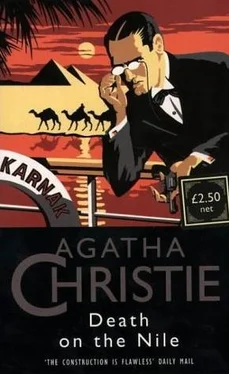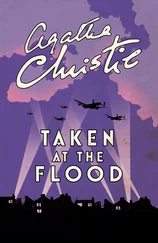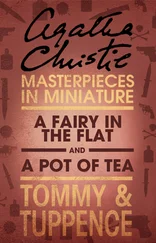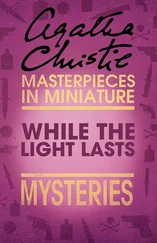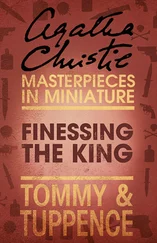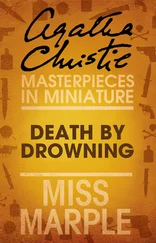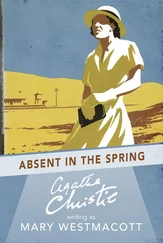Agatha Christie - Death On The Nile
Здесь есть возможность читать онлайн «Agatha Christie - Death On The Nile» весь текст электронной книги совершенно бесплатно (целиком полную версию без сокращений). В некоторых случаях можно слушать аудио, скачать через торрент в формате fb2 и присутствует краткое содержание. Год выпуска: 1983, Издательство: Bantam Books, Жанр: Классический детектив, на английском языке. Описание произведения, (предисловие) а так же отзывы посетителей доступны на портале библиотеки ЛибКат.
- Название:Death On The Nile
- Автор:
- Издательство:Bantam Books
- Жанр:
- Год:1983
- ISBN:нет данных
- Рейтинг книги:3.25 / 5. Голосов: 4
-
Избранное:Добавить в избранное
- Отзывы:
-
Ваша оценка:
- 60
- 1
- 2
- 3
- 4
- 5
Death On The Nile: краткое содержание, описание и аннотация
Предлагаем к чтению аннотацию, описание, краткое содержание или предисловие (зависит от того, что написал сам автор книги «Death On The Nile»). Если вы не нашли необходимую информацию о книге — напишите в комментариях, мы постараемся отыскать её.
Death On The Nile — читать онлайн бесплатно полную книгу (весь текст) целиком
Ниже представлен текст книги, разбитый по страницам. Система сохранения места последней прочитанной страницы, позволяет с удобством читать онлайн бесплатно книгу «Death On The Nile», без необходимости каждый раз заново искать на чём Вы остановились. Поставьте закладку, и сможете в любой момент перейти на страницу, на которой закончили чтение.
Интервал:
Закладка:
"I should perhaps have arrived at the truth with these slender indications, but an event occurred which rendered all doubts superfluous. Louise Bourget was killed in circumstances which pointed unmistakably to the fact that she had been blackmailing the murderer. Not only was a fragment of a mille franc note still clasped in her hand, but I remembered some very significant words she had used this morning.
"Listen carefully, for here is the crux of the whole matter. When I asked her if she had seen anything the previous night she gave this curious answer. 'Naturally, if I had been unable to sleep, if I had mounted the stairs, then perhaps I might have seen this assassin, this monster enter or leave Madame's cabin ' Now what exactly did that tell us?" Bessner, his nose wrinkling with intellectual interest, replied promptly: "It told you that she had mounted the stair." "No, no--you fail to see the point. Why should she have said that-to us?" "To convey a hint.' "But why hint to us? If she knows who the murderer is, there are two courses open to her-to tell us the truth, or to hold her tongue and demand money for her silence from the person concerned! But she does neither. She neither says promptly: 'I saw nobody. I was asleep.' Nor does she say: 'Yes, I saw some one, and it was so and so.' Why use that significant indeterminate rigmarole of words? Parbleu, there can be only one reason! She is hinting to the murderer-therefore the murderer must have been present at the time. But besides myself and Colonel Race only two people were present-Simon Doyle and Dr. Bessner." The doctor sprang up with a roar.
"Ach! what is that you say? You accuse me? Again? But it is ridiculous-beneath contempt." Poirot said sharply: "Be quiet. I am telling you what I thought at the time. Let us remain impersonal." "He doesn't mean he thinks it's you now," said Cornelia soothingly.
Poirot went on quickly.
"So it lay there-between Simon Doyle and Dr. Bessner. But what reason has Bessner to kill Linnet Doyle? None, so far as I know. Simon Doyle, then? But that was impossible!
There were plenty of witnesses who could swear that Doyle never left the saloon that evening until the quarrel broke out. After that he was wounded and it would then have been physically impossible for him to have done so. Had I good evidence on both those points? Yes, I had the evidence of Miss Robson, of Jim Fanthorp and of Jacqueline de Bellefort as to the first, and I had the skilled testimony of Dr. Bessner and of Miss Bowers as to the other. No doubt was possible.
"So Dr. Bessner must be the guilty one. In favour of this theory there was the fact that the maid had been stabbed with a surgical knife. On the other hand Bessner had deliberately called attention to this fact.
"And then, my friends, a second perfectly indisputable fact became apparent to me. Louise Bourget's hint could not have been intended for Dr. Bessner, because she could perfectly well have spoken to him in private at any time she liked. There was one person, and one person only who corresponded to her necessity-Simon Doyle.t Simon Doyle was wounded, was constantly attended by a doctor, was in that doctor's cabin. It was to him, therefore, that she risked saying those ambiguous words in case she might not get another chance. And I remember how she had gone on, turning t°him: 'Monsieur, I implore you-you see how it is?
What can I say?' And his answer, 'My good girl, don't be a fool. Nobody thinks you saw or heard anything. You'll be quite all right. I'll look after you. Nobody's accusing you of anything.' That was the assurance she wanted, and she got it!" Bessner uttered a colossal snort.
"Ach! it is foolish, that! Do you think a man with a fractured bone and a splint on his leg could go walking about the boat and stabbing people! I tell you, it was impossible for Simon Doyle to leave his cabin."
Poirot said gently:
"I know. That is quite true. The thing was impossible. It was impossible-but it was also true! There could be only one logical meaning behind Louise Bourget's words.
"So I returned to the beginning and reviewed the crime in the light of this new knowledge. Was it possible that in the period preceding the quarrels Simon Doyle had left the saloon and the others had forgotten or not noticed it? I could not see that that was possible. Could the skilled testimony of Dr. Bessner and Miss Bowers be disregarded? Again I felt sure it could not. But, I rememered, there was a gap between the two. Simon Doyle had been alone in the saloon for a period of five minutes, and the skilled testimony of Dr. Bessner only applied to the time after that period. For that period we had only the evidence of visual appearance, and though apparently that was perfectly sound, it was no longer certain. What had actually been seen leaving assumption out of the question?
"Miss Robson had seen Miss de Bellefort fire her pistol, had seen Simon Doyle collapse on to a chair, had seen him clasp a handkerchief to his leg and seen that handkerchief gradually soak through red. What had Mr. Fanthorp heard and seen? He heard a shot, he found Doyle with a red-stained handkerchief clasped to his leg. What had happened then? Doyle had been very insistent that Miss de Bellefort should be got away, that she should not be left alone. After that, he suggested that Fanthorp should get hold of the doctor.
"Accordingly Miss Robson and Mr. Fanthorp go out with Miss de Be!lefort and for the next five minutes they are busy on the port side of the deck. Miss Bowers's, Dr. Bessner's and Miss de Bellefort's cabins are all on the port side. Two minutes are all that Simon Doyle needs. He picked up the pistol from under the sofa, slips out of his shoes, runs like a hare silently along the starboard deck, enters his wife's cabin, creeps up to her as she lies asleep, shoots her through the head, puts the bottle that has contained the red ink on her washstand (it mustn't be found on him), runs back, gets hold of Miss Van Schuyler's velvet stole which he has quietly stuffed down the side of a chair in readiness, muffles it round the pistol and fires a bullet into his leg. His chair into which he falls (in genuine agony this time) is by a window. He lifts the window and throws the pistol (wrapped up with the tell-tale handkerchief in the velvet stole) into the Nile."
"Impossible!" said Race.
"No, my friend, not impossible. Remember the evidence of Tim Allerton. He heard a pop-followed by a splash. And he heard something elsethe footsteps of a man running-a man running past his door. But nobody should have been running along the starboard side of the deck. What he heard was the stockinged feet of Simon Doyle running past his cabin."
Race said:
"I still say it's impossible. No man could work out the whole caboodle like that in a flash--especially a chap like Doyle who is slow in his mental processes." "But very quick and deft in his physical actions!"
"That, yes. But he wouldn't be capable of thinking the whole thing out." "But he did not think it out himself, my friend. That is where we were all wrong. It looked like a crime committed on the spur of the moment. As I say it was a very cleverly planned and well thought out piece of work. It could not be chance that Simon Doyle had a bottle of red ink in his pocket. No, it must be design. It was not chance that he had a plain unmarked handkerchief with him. It was not chance that Jacqueline de Bellefort's foot kicked the pistol under the settee where it would be out of sight and unremembered until later."
"Jacqueline?"
"Certainly. The two halves of the murderer. What gave Simon his alibi? The shot fired by]acqueline. What gave Jacqueline her alibi-the insistence of Simon which resulted in a hospital nurse remaining with her all night. There, between the two of them, you get all the qualities you require-the cool resourceful planning brain, Jacqueline de Bellefort's brain, and the man of action to carry it out with incredible swiftness and timing.
Читать дальшеИнтервал:
Закладка:
Похожие книги на «Death On The Nile»
Представляем Вашему вниманию похожие книги на «Death On The Nile» списком для выбора. Мы отобрали схожую по названию и смыслу литературу в надежде предоставить читателям больше вариантов отыскать новые, интересные, ещё непрочитанные произведения.
Обсуждение, отзывы о книге «Death On The Nile» и просто собственные мнения читателей. Оставьте ваши комментарии, напишите, что Вы думаете о произведении, его смысле или главных героях. Укажите что конкретно понравилось, а что нет, и почему Вы так считаете.
